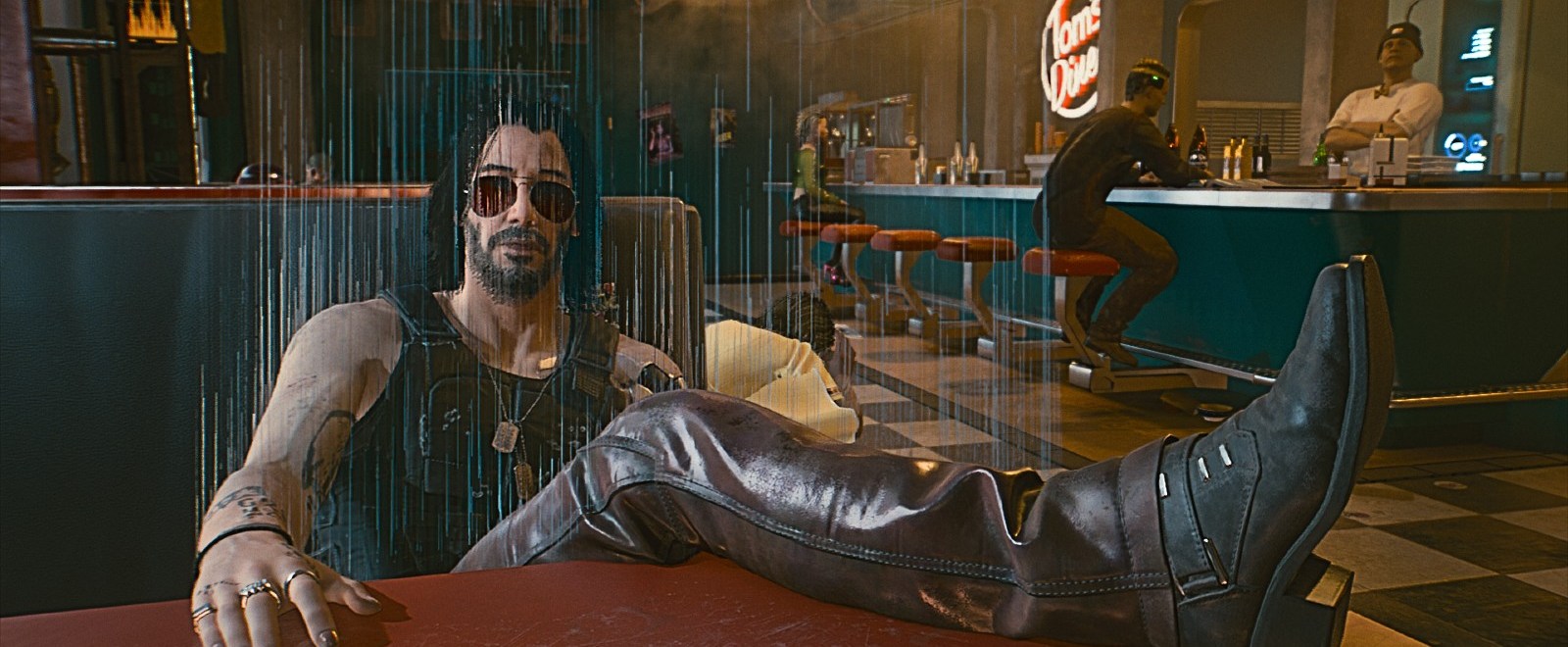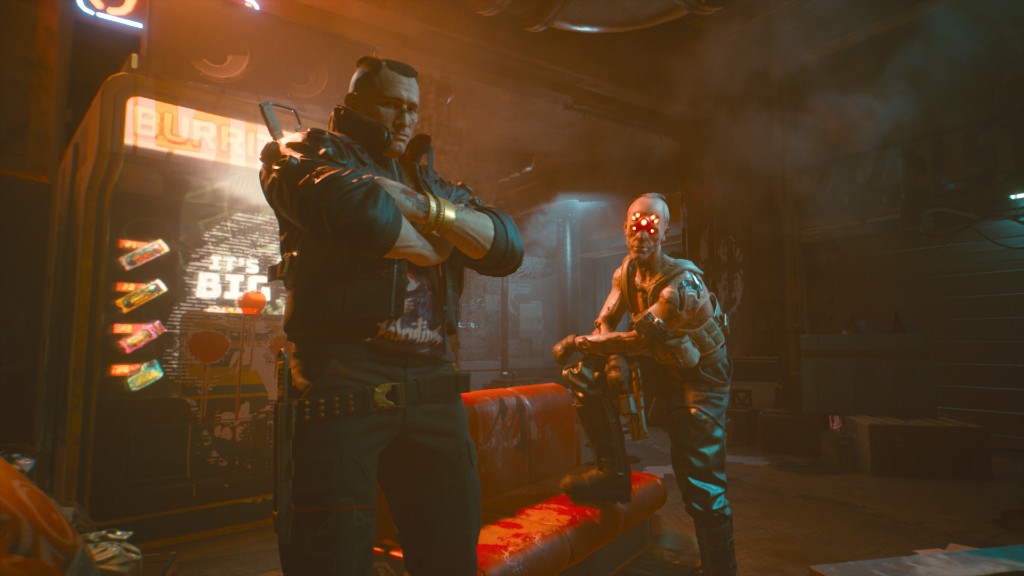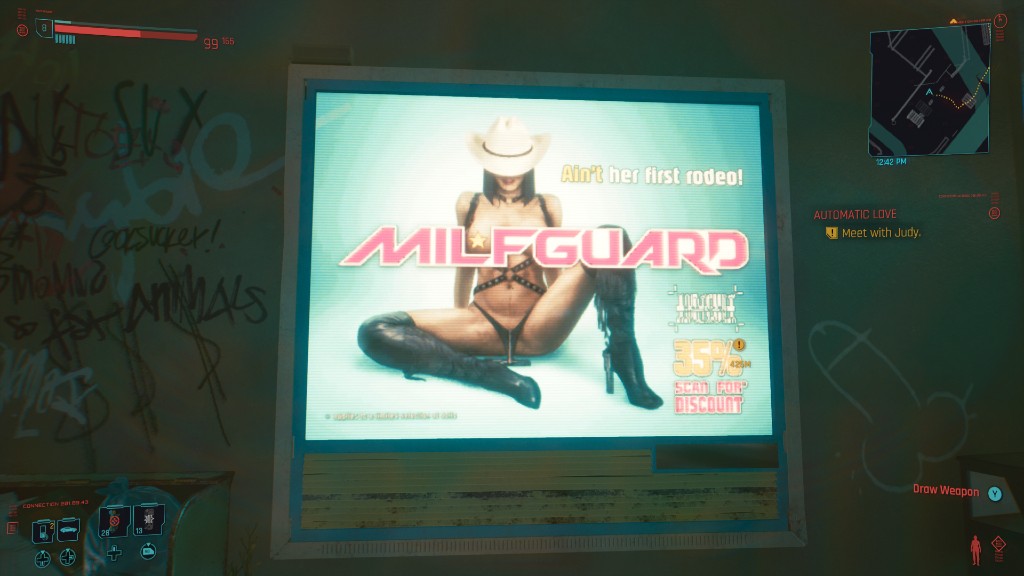
Let’s get this out of the way: Cyberpunk 2077 is fine. Mostly. For me, at least. There are better games that have come out in 2020. Lower profile games, for sure, that offer a more complete, satisfying and immersive gaming experience. I’ve also played far worse games I had much less fun with. But no game this year has evoked the kind of response that Cyberpunk 2077 has, likely because the title embodies so much of life amid a generation-defining societal crisis.
There’s really no way to capture the Cyberpunk 2077 experience on launch and preserve it for future generations. It’s already been hotfixed, and further patches and updates will inch the game closer to what its developers hoped to deliver to players on launch day. But it would be fitting to preserve what the game is, even with a hefty Day One patch, and the story of its launch struggles will be a useful tool to explain life in 2020 once we escape its grasp.

In Cyberpunk‘s defense, the game is supposed to vaguely echo the world in which players live. What’s the fun of making a game set in the near future without a cynical nod to the present? And so early on, an injured character with a “platinum” insurance plan gets airlifted out of a residence for life-saving treatment by armed security. Later, a much less-insured one dies in an AI-powered ridesharing vehicle. There’s nothing you can do to stop it, but at least you get to decide where the corpse goes. On the way to your apartment, a screen in an elevator airs a cable news debate where one talking head points out that corporations pay the majority of taxes in Night City, shouting down another wondering what percentage of their profits actually get contributed to the tax base.
It’s a clever evocation of current themes of inequality and willful dishonesty in politics, prorated for the next six decades or so of societal entropy. Night City is a place of extremes, brutally polarized by those who have unfairly deprived others of even slight comforts. The undercurrent of shameless capitalism and erosion of the social fabric was made clear. And some storytelling details did strike me, including the spam-like ads in V’s computer for genital mods that eerily mirrored the several PR pitches about male genital prosthetics — including one about mothers buying them for their sons — I’m horrified to report have arrived in my work inbox recently. But those intentional shocks and reminders of the present pale in comparison to the real-world inequality the game’s release actually highlighted.
NOW is the time to actually buy cyberpunk, while the bugs are still hot and hilarious, not refund it! cherish this pic.twitter.com/CSEmyKmrQl
— Gene Park (@GenePark) December 17, 2020
CD Projekt Red’s apology for launch issues specifically pointed out issues gamers have had playing Cyberpunk 2077 on the PlayStation 4 and Xbox One — the consoles, mind you, the games were actually designed for. Players experiencing Cyberpunk 2077 on the last generation of consoles are having a much worse time. The game appears less stable, the glitches seem to occur more frequently and with more severe consequences. Those fortunate to have PlayStation 5s or, like me, an Xbox Series S have reported better experiences with Cyberpunk 2077. Through about 25 hours I’ve had one crash, just after an autosave, and things rebooted up fine after that. Some dialogue is wonky and overlaps, or doesn’t match up to subtitles. Oh, and one boss glitched out and made it significantly easier to kill him than it should have been.
— Designated Kitty (@Designatedkitty) December 13, 2020
But that version of Cyberpunk is available to a much smaller portion of the population to say the least, one that costs a premium to obtain and that’s limited by a scarcity likely more severe than it needed to be. Just like Madden NFL 21 and NBA 2K21, Cyberpunk 2077 is not exclusive to the next-gen Microsoft and Sony consoles but clearly is a result of more work put in to satisfy those who spent the money to play it on a new console. It doesn’t make any of those titles necessarily great, but they’re closer to the games they’re supposed to be on machines barely a month old, while everyone else suffers through what’s left for them.
That realization among gamers has caused a swift backlash, even among some of Cyberpunk‘s most fervent fans who defended the title long before the game actually existed as something to inevitably disappoint. Cyberpunk‘s years-long marketing seemed to intentionally court some of the worst kind of gaming fans, framing the discourse with edgelord winks and nods that helped hype the game to a level of expectations impossible to meet.

Some of that hyperbole has almost certainly converted potential energy into disappointed outcry, but the warning signs were all there if you were willing to look. The game was delayed several times in 2020, finally landing with a thud 15 days before Christmas. CD Projekt Red gave many journalists just a few hours ahead of launch to actually get their hands on the sprawling, sidequest-filled game. The COVID-19 pandemic made everything that much more complicated this year, and making gargantuan games like Cyberpunk is hard enough in the modern gaming industry. But gamers didn’t force CD Projekt Red to release an unfinished game no matter how much they tweeted. And neither did journalists covering the launch cycle.
Developers pretty clearly felt pressure from all over — inside and out of the company — to put something out regardless of its polish and artistic integrity. The story that’s played out at countless game companies over the years seems most likely here: pressure from those not actually making the game to release it pushed it out the door and out of the hands of those who knew they simply needed more time. Imagine going through a pandemic-engulfed year like this and enduring months of marathon crunch only to release something clearly not where anyone wants it to be. But there are quarterly goals to hit on spreadsheets and futuristic Doritos collaborations with which to create timely synergy, you see.
Whole game is going to be a meme.
— Cyberpunk 2077 (@CyberpunkGame) July 2, 2018
Sony’s decision Thursday to remove the game from its PlayStation store is a response to CD Projekt Red offering refunds to unsatisfied gamers on Monday. But the PlayStation maker’s actions here were clear: If the game’s broken enough to deserve a refund, then it’s not finished enough to sell in the first place. It’s a corporate battle playing out on a very public stage, but also another reminder of the fractured and complex gaming landscape Cyberpunk belongs to. CD Projekt Red may own GOG, where many copies of Cyberpunk 2077 were sold and may be easily returned. But it doesn’t control how the rest of the market sells and views the game it delivered. Making a promise to gamers is nice, sure, but delivering on that promise might mean some ugly concessions in order to make good.
There’s a good chance Cyberpunk turns into something much closer to what gamers hoped it could be at the start of 2020. Games like No Man’s Sky and Fallout 76 trended on social media on Thursday night as the Sony news spread, two titles that debuted with disappointment and bad press but have grown and improved with time. Perhaps the version of Night City Cyberpunk‘s makers want to give us is possible in a different, future year. But it’s hard to argue the version we have right now isn’t perfect for the 2020 we’re currently stuck in.
